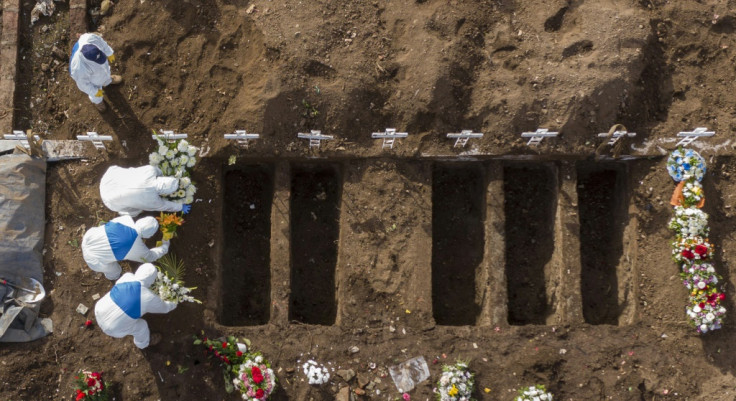Chile crosses 10,000 virus deaths as president announces aid package
President Sebastian Pinera announced $1.5 billion in soft loans aimed at cushioning the blow of the economic crisis on Chile's middle class.
Chile recorded 10,159 coronavirus deaths on Sunday, as President Sebastian Pinera announced a $1.5 billion aid package to help the middle class, which has been battered by the economic crisis.
The death toll is compiled weekly by the Department of Statistics and Health (DEIS) and is considered to be the most accurate for reporting COVID-19 deaths by test results or by symptoms.
According to Sunday's report, there were 7,057 deaths confirmed via swab test and 3,102 "probable" deaths diagnosed via symptoms.
The DEIS figure contrasts with the official daily report that on Sunday showed 6,308 deaths out of 295,532 cases since the first case was detected in Chile four months ago.
Health Ministry epidemiological chief Rafael Araos explained Friday that the daily report's objective is provisional, recommending to use the DEIS figure instead.
The grim milestone comes as Pinera announced $1.5 billion in soft loans aimed at cushioning the blow of the economic crisis on Chile's middle class.

The measure still needs to be approved by Congress.
If approved, the package would provide for the delivery of a credit of up to $3,200 over four installments, with a zero interest rate and four years to repay it, along with the postponement of dividend payments with a state guarantee.
It also provides an extension of a subsidy for rent payment and a credit to pay for higher education.
"Chile is a mostly middle class country, which has progressed on the basis of its own merit, effort and work. The middle class knows this and is proud of its achievements. But it also deserves and needs assurances and opportunities for the future," Pinera said when presenting the aid package.
Middle-class families had been excluded from state aid provided to weather the economic fallout of the coronavirus pandemic in Chile.
Chile is one of the main global virus hotspots, as it was slow to implement lockdown measures and granted a large number of exceptions for "essential" workers once it did so on May 15.
Copyright AFP. All rights reserved.
This article is copyrighted by International Business Times, the business news leader





















